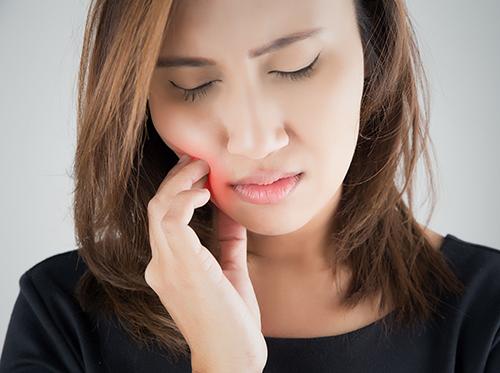Every Day is Earth Day
- posted: Apr. 16, 2024
During the early days of the environmental awareness movement, those who demonstrated against pollution, toxic chemicals, and the general public health were known as hippies. The early 1970s were a Read More
Oral Health Concerns Specific to Pregnant Women
- posted: Apr. 09, 2024
A lot of changes occur in a woman's body during pregnancy. Hormone fluctuations are responsible for many of those changes, including the need for additional attention to the teeth and Read More
Do Spring Allergies Mean (B)Looming Dental Problems?
- posted: Apr. 02, 2024
April showers bring May flowers, and May flowers bring . . . allergies. If you’re one of the millions of people who suffer from seasonal allergies, you might be suffering Read More
Sleep Apnea: How we can help
- posted: Mar. 26, 2024
At Woodland Dental Group, we understand that getting high-quality sleep is vital to maintaining your overall health. Insufficient sleep can lead to an inability to concentrate, motor vehicle accidents, and Read More
The Purpose of a Dental Crown
- posted: Mar. 19, 2024
A dental crown, otherwise known as a cap, covers an infected tooth and can vary in function, depending on the position of the tooth. Crowns cover all the visible parts Read More
Go Green for St. Patrick’s Day
- posted: Mar. 12, 2024
Millions of people, around Big Bend, Wisconsin and beyond, wear green on St. Patrick’s Day so they can show their spirit for the holiday and avoid getting pinched. While it Read More
Good Nutrition Leads to Healthy Mouths
- posted: Mar. 05, 2024
At Woodland Dental Group, we know the most common oral health diseases are tooth decay and periodontal disease (or gum disease), and both are among the easiest to prevent. One Read More
Dental X-rays and Your Child
- posted: Feb. 27, 2024
We’re parents, so we worry. It comes with the job description! That’s why we make sure our children use toothbrushes with soft bristles and apply just the right amount of Read More
Make Brushing Teeth Fun!
- posted: Feb. 20, 2024
It’s understandable that kids would rather be playing outside or watching their favorite movie instead of doing a “boring” task like brushing their teeth. But there are ways to make Read More
Team Dark Chocolate
- posted: Feb. 13, 2024
Valentine’s Day is the holiday to celebrate all the treasured relationships in your life. It’s a time to honor love in all shapes and forms with cards, social gatherings, and Read More
Does flossing hurt your gums?
- posted: Feb. 06, 2024
Ideally, it should never hurt when you floss your teeth. But if you haven’t flossed in a long while or don’t do it regularly, you may experience sore or bleeding Read More
Chipped Your Tooth? Now What?
- posted: Jan. 30, 2024
Accidents happen. Next time you’ll wear your mouthguard when you skateboard, never use your teeth to open anything, and carefully step away from your grandmother’s hard candy dish. But what Read More
Toothaches and Abscesses
- posted: Jan. 23, 2024
With the doctor, emergency dental care is only a phone call away. Dental problems are uncomfortable and should always be treated as soon as possible to prevent them from getting Read More
Common Emergency Care Visits: Toothaches or abscesses
- posted: Jan. 16, 2024
Dental problems do not always wait for normal office hours. Broken fillings or damaged teeth are common reasons for emergency treatment. Toothaches and abscesses can also require prompt attention. the Read More
How do I clean my baby’s teeth?
- posted: Jan. 09, 2024
Creating good dental hygiene habits early in your child’s life is essential to the health of his or her teeth, even when your infant doesn’t have any. By starting now, Read More
Tooth Protection and Winter Sports
- posted: Jan. 02, 2024
Just because it’s cold out there doesn’t mean you’ll give up keeping fit and active! Winter is the season for some of our favorite team sporting activities, and when you’re Read More















